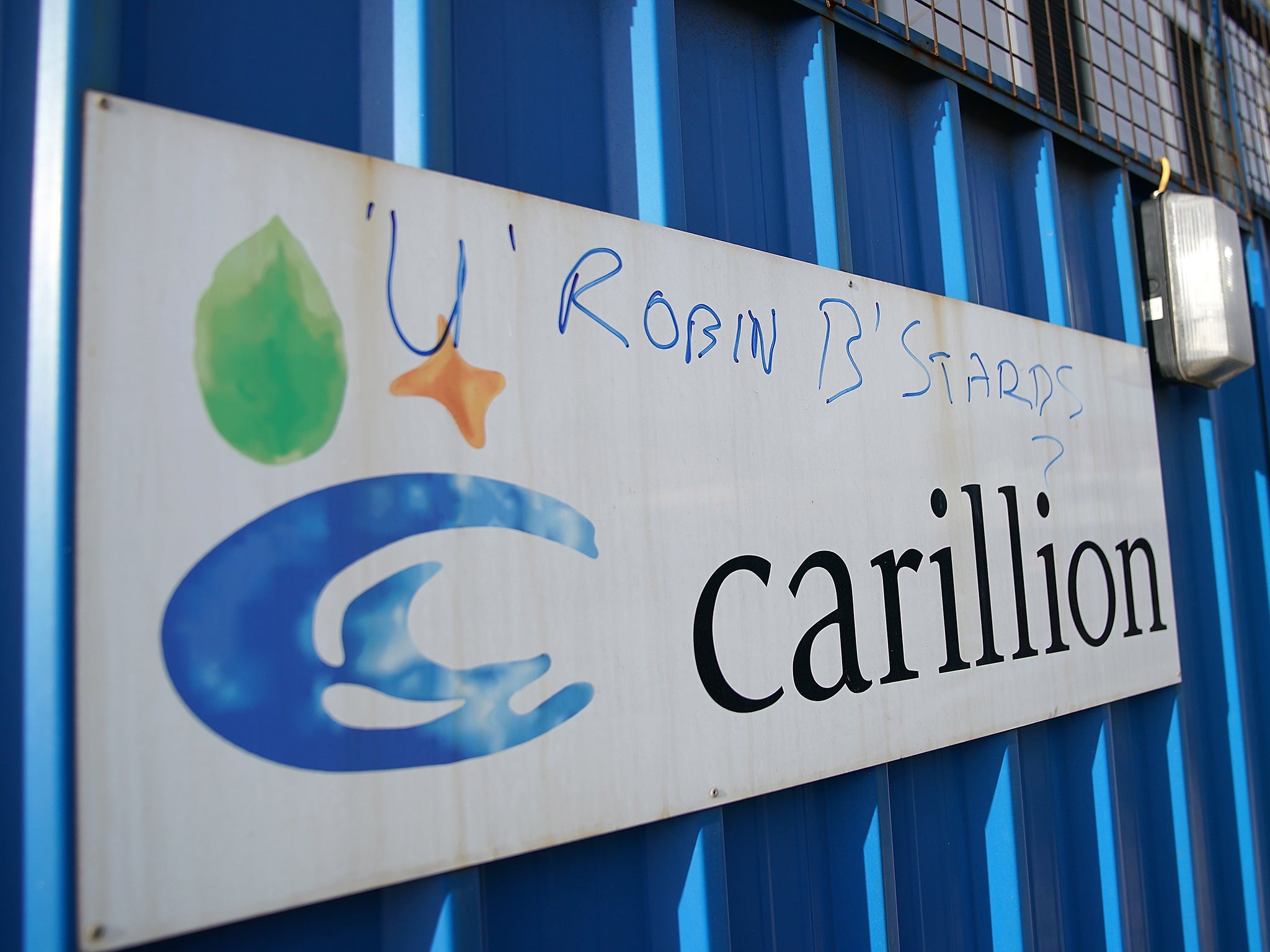Carillion: Investors smelled a rat and then ran. Why didn't ministers?
Big shareholders who looked into the company started to head for the exit long before the bell was tolling because their questions weren't answered

“Investors were fleeing for the hills and it appears those who looked closest ran fastest,” said the ever quotable Frank Field, the chair of Parliamentary Work & Pensions Committee, upon the publication of correspondence he and Business Committee chair Rachel Reeves have had with some of Carillon’s big shareholders through the course of their inquiry into the contractor's collapse.
Those who looked closest, he opined, ran fastest. As the correspondence reveals, Standard Life began the process of divestment at the end of 2015.
Investors had taken note of the company’s high levels of debt, weak cash flow, and widening pension deficit. When they raised these issues with its directors, they didn’t get good answers. So they headed for the exit.
An eminently sensible decision that nonetheless raises a number of troubling questions.
For a start, as Mr Field pointed out, it calls into question the narrative of the company's former directors who “told us all was sunny until a bolt of Qatari lightning hit them out of the blue” (the Qatari lightening in question was a big contract that went bad).
Then there is the sunny picture painted by the firm’s annual reports, and the stamp of approval given to the information contained therein by auditor KPMG.
Another point that should be raised (again and again) is this: If big fund managers picked up on the problems at the firm and withdrew their investors money when they didn't get the answers they wanted from its directors, why did the Government not do the same thing with regard to taxpayers’ money?
Are we to believe that due diligence is an alien concept in the offices of ministers and senior civil servants? Does the financial health of the companies they lavish public funds upon not enter into their discussions?
The concerns that prompted the firms’ shareholders to demand meetings with the Carillon board must have been held by at least some of those in the corridors of power. They might not have been as sharp as, say, Standard Life. But this column was raising issues about the company months ago. It'd be nice for me were I able to claim that I was alone in sounding the alarm bell, but I was not.
As I have written in the past, I suspect that ministers and their civil servants chose to turn a blind eye to the problem in the hopes that Carillon would trade through its difficulties, as other troubled contractors have done.
They may also have taken note of the National Audit Office’s concerns about contractors’ having become “too big to fail” and reasoned that if they were to stem the flow of public money, which continued even after last July’s brutal profit warning, Carillon would fail.
But, of course, it did fail.
It is to be hoped that MPs will pursue these points as their investigation progresses. Taxpayers deserve answers to why so much of their money was handed to the company when its shareholders were withdrawing it.
They also need to be reassured that reforms will be enacted with the aim of preventing a similar disaster from occurring in future.
The outsourcing model the Government relies upon, the way it sat back as a handful of mega-contractors came into being, the Buggins turn next approach to the award of contracts to them, the apparent lack of interest in their financial health, the troubling role of the big accountancy firms; this affair raises so many issues that need to be addressed with deep and meaningful reforms when the finger pointing has stopped.
The honourable members of the two committees probing Carillon have an awful lot of work ahead of them.
They should not be alone in that.
Join our commenting forum
Join thought-provoking conversations, follow other Independent readers and see their replies
Comments
Bookmark popover
Removed from bookmarks